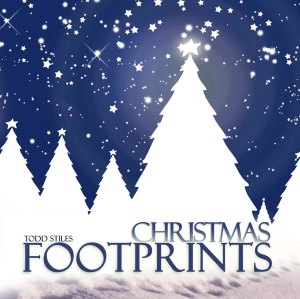By Todd Stiles
 There’s something I want you to know about fear: While it is no doubt unfruitful, it is rarely unfounded. In other words, there usually are some human reasons fear raises its ugly head.
There’s something I want you to know about fear: While it is no doubt unfruitful, it is rarely unfounded. In other words, there usually are some human reasons fear raises its ugly head.
Take Mary, the mother of Jesus and wife of Joseph, for an example. Her fear was probably related to some very specific things she knew would happen to her because she was pregnant. For instance, violating the betrothal period, a one-year legal agreement in which there was to be physical separation, probably meant terrible consequences. Most scholars believe that under the Old Testament law you could stone someone to death for this kind of trespass. However, capital punishment would most likely not have been executed by the Jewish nation at this time because they were under an occupying foreign government. Still, the fear of punishment was strong.
Then there’s the family feud that loomed before her. In fact, I wonder about the first encounter she must have had with her parents. What would it have been like to be the parents of a teenager expressing, “I think I’ve been impregnated by the Holy Spirit”? Whew! You can see why fear could have easily become her overriding feeling.
Then there was the whole idea of social disgrace. Joseph could easily have made an accusation of adultery, which would have brought him to a place of dishonor as well.
How did Mary find peace? We see she faces her fear through the lens of the Word of God. Check out Luke 1:46 and the surrounding verses and you’ll find that her first song of praise is filled with Old Testament quotations. Truly, God’s Word brought her to a place of faith when everything around her screamed, “Be afraid! Be afraid!”
How do you respond when life screams the same thing at you? What is your response when circumstances yell, “You’d better watch out! This is unexpected!” and situations shout, “You ought to be afraid of what is coming down the pike!” I encourage you to respond like Mary: In faith. Walk in her footprints, for Mary left us footprints of faith.
No doubt we all want to respond in faith. The problem is, sometimes we don’t. One reason I think this happens is because we don’t understand faith very well. You see, faith is not a blind leap; it is an informed step of trust.
Here’s the difference. A blind leap has no object on which to stop; but an informed step has a landing place in mind. A blind leap is like a “free-fall fantasy,” but an informed step is a “faith-full reality.” That’s biblical faith—the reality of God’s promises underneath our every step.
Biblical faith has as its objects two certain things—two “faith-full facts”—and it’s from these certainties that we can step confidently from the known to the unknown.
The first “faith-full fact” is the Word of God. Get this: God spoke the universe into existence. That’s right—it was his words that brought everything into their place. In fact, Hebrews 11:1 says, “By faith we understand that the worlds were framed by the command of God.” Apparently, it is through faith that I understand God’s creative ability. In other words, what God has said provides a foundation I can see. So, first of all, faith has as its object what God has said. Whether through the visible creation, in fulfilled Old Testament prophecy, evidenced New Testament miracles, or inspired apostolic teachings, what God has said is true and we can stand on it as completely accurate.
In addition to what God has said, our faith relies on what God has shown: the Son of God. The first few verses of Hebrews 1 say it like this: “In the past God spoke to our forefathers through the prophets . . . but in these last days he has spoken to us by his Son . . . the exact representation of [God’s] being, sustaining all things by his powerful word.” There you have it—the Son of God is proof positive God exists. Have no doubt, for Jesus Christ was a real, historical person who lived on a real planet called Earth. Yes, you can believe and trust God, and the life of Jesus is the evidence that leads to that conclusion.
Essentially, our faith rests on the secure and fundamental objects of what God has said in his Word and what God has shown in his Son. And those two things say to me that I have a secure and concrete place from which to take an informed step of trust. It is still a step of trust – from the known to the unknown – but it is a confident, informed one.
This Christmas, as you respond to unscripted events, let God’s Word and God’s Son form your responses. When something you didn’t plan on invades your day, ask “What does God say? What would Jesus do?” As you answer those two questions, you can be assured your first response will be one of faith, not fear.
*Excerpted from chapter 1 of Christmas Footprints (InkLink Publishing, 2008) available at Amazon.com.
Todd Stiles is Lead Pastor of First Family Church in Ankeny.





